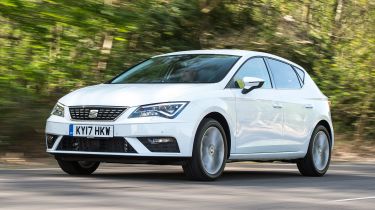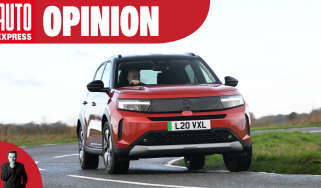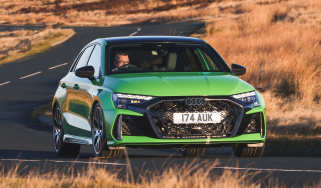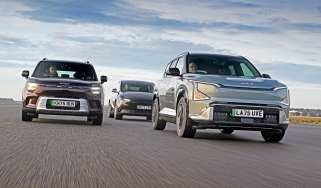SEAT Leon (2012 - 2020) review - Engines, performance and drive
Hi-tech range of engines, paired with a superb chassis that's sporty and sophisticated - the Leon Cupra is a real star

A familiar range of Volkswagen Group engines is offered in the SEAT Leon; all are turbocharged, either as TSI petrols or TDI diesels. The spread of engines is broad to cover all market demands: business users default to diesel, for example, while private buyers are increasingly taking a petrol alternative.
SEAT is right to offer such a wide range of engines because the accomplished drive of the Leon justifies it. Derived from the same MQB platform as the Volkswagen Golf, the Spanish brand has taken a slightly sportier focus in the development and this subtle change of emphasis makes the Leon more interesting and engaging to drive.
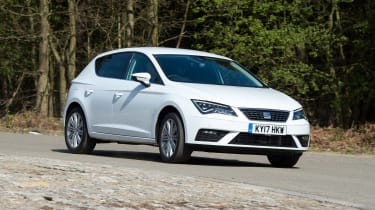
The steering is direct, the six-speed manual has an easy but reassuringly mechanical shift action and the dampers deal with most surfaces well. On crowned roads, over surface changes and potholes the Leon can lumber along a little, with jolts felt through individual corners of the car, but it’s calm and relaxed most of the time.
That steering and a good level of grip means it handles well, too. However, the Leon’s XDS torque vectoring system on the front axle is very aggressive. It doesn’t cut in smoothly and you can hear the system clicking in, and although it helps give the front tyres more bite coming out of corners, it feels as if the car is fighting itself quite noticeably.
Used - available now
The Leon Cupra is more sophisticated than earlier slightly rough-and-ready Cupra models, thanks to an electronic limited-slip front differential and surprisingly compliant ride. It’s about as fast as you’d need a hot hatchback to be, frankly, and a very worthy cheaper alternative to the Volkswagen Golf R.
Engines
The engine range kicks off with the 1.0 TSI 115 petrol three-cylinder, which has 113bhp and replaced the older 1.2 TSI four-cylinder. It's used in many VW Group cars, and is as good here as it is elsewhere - it sounds good, has plenty of poke and the economy figures speak for themselves (53.3mpg and 120g/km).
As well as ditching the 1.2 TSI, the latest Leon also does without the 1.4 TSI, which has been replaced by a 1.5 TSI Evo in 130PS and 150PS guises. These have 128bhp and 148bhp respectively, while the Evo part of their name refers to the fact they feature cylinder deactivation to help save fuel. 0-62mph takes 9.4 seconds for the 130PS engine, and 8.2 seconds for the 150PS version. If you want a DSG auto, then the latter engine comes with a seven-speed version of that transmission.
The 113bhp 1.6 TDI 115 diesel no longer comes in Ecomotive guise - the latest emissions laws have put paid to eco models such as this - and it manages 0-62mph in 9.8 seconds. The 2.0 TDI is offered in 150PS guise with 148bhp, and is a staple of the VW Group family. It's a great performer.
The range-topping Cupra hatch has a 2.0 TSI turbo petrol, but the most recent WLTP test regime has seen the engine drop from 296bhp to 287bhp, and is now badged Cupra 290 rather than Cupra 300. It's also no longer offered with a six-speed manual gearbox, having to make do with the seven-speed DSG box instead. It's still a decent transmission, with fast shifts and a smooth operation, but it does detract from the driving fun a little. And a 0-62mph time of 6.0 seconds is easily achievable courtesy of the standard-fit launch control.
